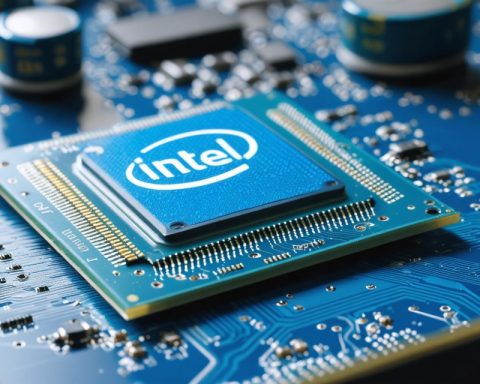- Nikola, once a promising figure in hydrogen trucking, has filed for Chapter 11 bankruptcy.
- Challenges included intense market competition, high interest rates, and technological barriers.
- Despite once exceeding the valuation of automotive giants, Nikola faced dwindling cash reserves and high operational costs.
- The waning demand for scalable hydrogen technology further hindered Nikola’s success.
- Controversies, including founder Trevor Milton’s 2022 fraud conviction, significantly tarnished the company’s reputation.
- Nikola’s stock value plummeted by 99% since its market debut, reflecting major investor disappointment.
- The broader EV industry faces increased scrutiny, demanding tangible returns rather than mere visionary promises.
- Nikola’s collapse underscores the need for EV startups to focus on solid execution and credibility to survive.
The story of Nikola, once a beacon of innovation in hydrogen trucking, now serves as a cautionary tale. The company, which initially sparkled with potential and innovation, has made the disheartening descent into Chapter 11 bankruptcy. A host of challenges — fierce market competition, high interest rates, and technology hurdles — proved insurmountable. The tale underscores a crucial reality in the electric vehicle industry: dreams alone are not enough.
At its zenith, Nikola’s valuation soared, briefly eclipsing even that of traditional automotive giants like Ford. Yet, as swiftly as its fortunes rose, they fell. Precarious cash reserves, stagnating at a meager $47 million, signaled a grim future. The capital lifeline of $300 million proved futile against rising operational costs and tepid fleet adoption. As the market’s appetite for genuinely scalable hydrogen technology waned, so too did Nikola’s prospects.
The company’s journey was dotted with sensational controversies. The now-infamous promotional tactics and the 2022 fraud conviction of founder Trevor Milton created a shadow that the company could never quite shake. Such revelations, coupled with repeated stock plummets, led to the ultimate indignity of a 99% decline in stock value since its market debut.
Nikola’s fall is emblematic of a broader reckoning in the EV sector. Investors previously enthralled by visionary promises are now demanding tangible returns. Even the stalwart Tesla has felt the sting of the market’s shifting expectations. The lesson is stark: for EV startups, the future requires more than aspirations. Solid execution and unwavering credibility are essential for survival in an unforgiving economic climate.
As Nikola capitulates, the message is clear — the landscape for EV hopefuls is one of increased scrutiny and realistic expectations. Those unable to adapt may find themselves following Nikola into the annals of tumultuous industry history.
This EV Giant’s Collapse Offers Crucial Lessons for Aspiring Innovators
Overview: The Cautionary Tale of Nikola
The story of Nikola, once lauded for its innovation in the hydrogen trucking sector, serves as both a cautionary tale and a timely reminder. Despite briefly surpassing the valuations of established automotive giants such as Ford, Nikola’s journey from promising innovator to Chapter 11 bankruptcy is one marked by unmet expectations, controversial strategies, and ultimately a stark industry reality: dreams and visions are not enough without robust execution.
How-To Steps & Life Hacks: Navigating the EV Industry
1. Prioritize Financial Health: Sustain a robust financial model. Regularly assess cash flow and operational costs. Align technological advancements with financial viability.
2. Emphasize Transparency: Develop clear, truthful communication strategies. Openly disclose challenges and progress to maintain investor and consumer trust.
3. Adopt Agile Practices: Implement flexible business models to quickly adapt to market shifts and technological changes.
4. Leverage Strategic Partnerships: Collaborate with suppliers, technology firms, and industry leaders to enhance innovation and reduce costs.
Real-World Use Cases: The Promise of Hydrogen Trucks
Despite Nikola’s challenges, hydrogen trucks offer advantages such as:
– Reduced Emissions: Hydrogen trucks produce zero emissions at the tailpipe, critical for sustainable transport.
– Quick Refueling: Hydrogen fuel cells allow fast refueling, offering operational efficiency over battery electric vehicles for long-haul routes.
– Heavy-Duty Performance: Ideal for long distances and heavy loads, where electric batteries might be less efficient.
Market Forecasts & Industry Trends
The global hydrogen vehicle market is projected to grow, driven by increasing demand for clean technologies and government initiatives. However, the landscape is competitive, with players like Hyundai, Toyota, and Daimler leading advancements.
Reviews & Comparisons: Nikola vs. Alternatives
Nikola’s peers like Tesla, Rivian, and Lucid Motors exhibit stronger financial health and clearer pathways to scaling production. The key differentiator remains credibility and execution.
Controversies & Limitations
Nikola’s controversial promotional tactics and fraud charges significantly damaged its reputation. The industry takeaway is that transparency and integrity must underpin all corporate activities.
Features, Specs & Pricing
As Nikola ceased its operations, access to the latest specs and pricing may fluctuate. Prior models touted impressive range projections and competitive pricing, but execution was lacking.
Security & Sustainability Challenges
– Infrastructure: The scarcity of hydrogen refueling stations hampers market adoption. Investment in infrastructure is crucial for growth.
– Technology Hurdles: Hydrogen extraction remains energy-intensive and costly.
Insights & Predictions
The EV industry will continue evolving, but startups must adopt realistic frameworks for technology development and business growth. Investors are likely to prioritize startups with clear, executable strategies and transparency in operations.
Tutorials & Compatibility
For companies considering entering the hydrogen truck market, focus on:
– Developing partnerships for hydrogen supply chains.
– Investing in R&D for more efficient fuel cell technologies.
– Exploring government incentives supporting hydrogen infrastructure expansion.
Pros & Cons Overview
Pros:
– Environmental Benefits
– Efficiency in Refueling
– Potential for Heavy-Duty Use
Cons:
– Infrastructure Limitations
– High Production Costs
– Market and Investor Skepticism
Actionable Recommendations
For aspiring EV startups, Nikola’s story provides critical insights:
– Align Vision with Reality: Ensure aspirations are grounded in sound business principles.
– Build Strong Financial Resilience: Secure diverse funding sources, plan for scalability.
– Foster Trust with Stakeholders: Commit to ethical practices and full transparency.
– Adapt and Innovate: Remain agile in addressing technological and regulatory changes.
By learning from Nikola’s rise and fall, companies can navigate the challenging yet promising waters of the EV industry with informed strategies and resilient plans.
For more insights into electric vehicles and sustainability trends, visit the credible sources such as GreenBiz or Reuters.










